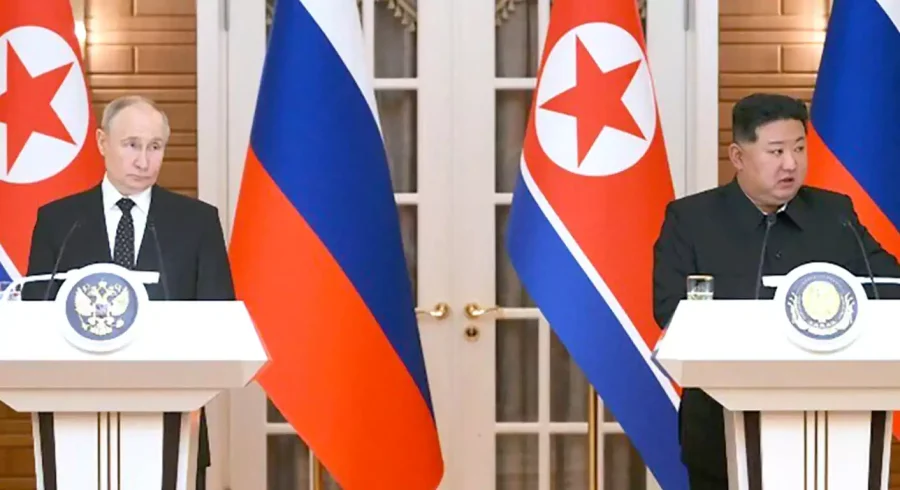Russian President Vladimir Putin signed a deal with North Korea’s Kim Jong Un on Wednesday that includes a mutual defence pledge, one of Russia’s most significant moves in Asia for years that Kim said amounted to an “alliance”.
Putin’s pledge overhauls Russia’s entire post-Soviet policy on North Korea just as the United States and its Asian allies try to gauge how far Russia could deepen support for the only country to have tested a nuclear weapon this century.
After talks, they signed a “comprehensive strategic partnership” pact, which Putin said included a mutual defence clause in the case of aggression against either country. “The comprehensive partnership agreement signed on Wednesday provides, among other things, for mutual assistance in the event of aggression against one of the parties to this agreement,” Putin said. He said Western deliveries of advanced, long-range weaponry, including F-16 fighters, to Ukraine for strikes against Russia breached major agreements.
“In connection with this, Russia does not exclude for itself the development of military-technical cooperation with the Democratic People’s Republic of Korea,” Putin said. Kim praised Russia for making what he cast as an enormously significant strategic move to support North Korea, which was founded in 1948 with the Soviet Union’s backing.
Depending on the exact wording of the pact, which was not immediately released, it could be a dramatic shift in the entire strategic situation in Northeast Asia, said Artyom Lukin, at Russia’s Far Eastern Federal University. While North Korea has a defence treaty with China, it does not have active military collaboration with Beijing like it has developed with Russia over the past year. North Korea also signed a 1961 treaty with the Soviet Union that included promises of mutual support in the event of an attack.
Putin’s courting of Kim, which includes gifts of limousines, a tour of Russia’s new space launch centre and a “strategic partnership” pact, including a mutual defence clause, has alarmed the United States and its Asian allies.—Agencies










